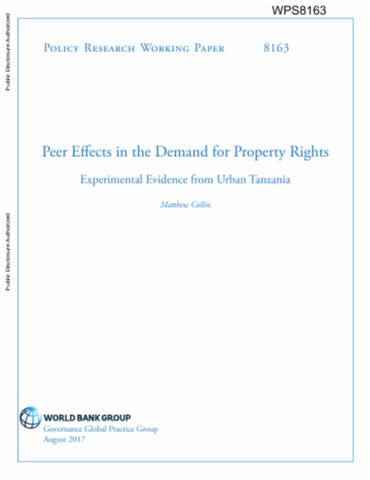Resource information
This paper investigates the presence of endogenous peer effects in the adoption of formal property rights. Using data from a unique land titling experiment held in an unplanned settlement in Dar es Salaam, the analysis finds a strong, positive impact of neighbor adoption on the household's choice to purchase a land title. The paper also shows that this relationship holds in a separate, identical experiment held a year later in a nearby community, as well as in administrative data for more than 160,000 land parcels in the same city. Although the exact channel is undetermined, the evidence points toward complementarities in the reduction in expropriation risk, as peer effects are strongest between households living close to each other and there is some evidence that peer effects are strongest for households most concerned with expropriation. The results show that, within the Tanzanian context, households will reinforce each other’s decisions to enter formal tenure systems.


